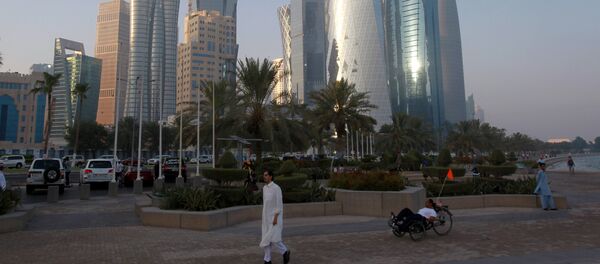ASTANA (Sputnik) — On June 5, Saudi Arabia, the United Arab Emirates, Bahrain and Egypt broke off diplomatic relations and communication with Qatar, accusing it of supporting terrorism and interfering in their internal affairs. The Maldives, Mauritius, and Mauritania followed suit, while Jordan and Djibouti decided to reduce the level of their diplomatic contacts with Qatar.
"Certain confrontation among the Gulf countries may probably have some negative impact on the issue of the Syrian settlement, because there is a further radicalization of opposition groups, someone is leaving some sponsors and is joining other, more radical groups," Lavrentyev told reporters after the fifth round of Syria talks in Astana.
The Syrian armed opposition is more and more interested in stopping hostilities, most of ceasefire violations are simple provocations, he added.
"In a significant number of incidents that we register, including for the most part on the Internet, it is simply provocations, because more and more [opposition] units are welcoming the cessation of hostilities, no one is interested in continuing bloodshed."
On Tuesday, Doha said that the demands are unrealistic, but it is ready to continue dialogue to resolve the diplomatic crisis.
Russian Foreign Minister Sergei Lavrov said that Russia supports all initiatives aimed at a thaw in the Persian Gulf, adding that President Vladimir Putin discussed the Qatar crisis with both the Saudi side and Doha.


